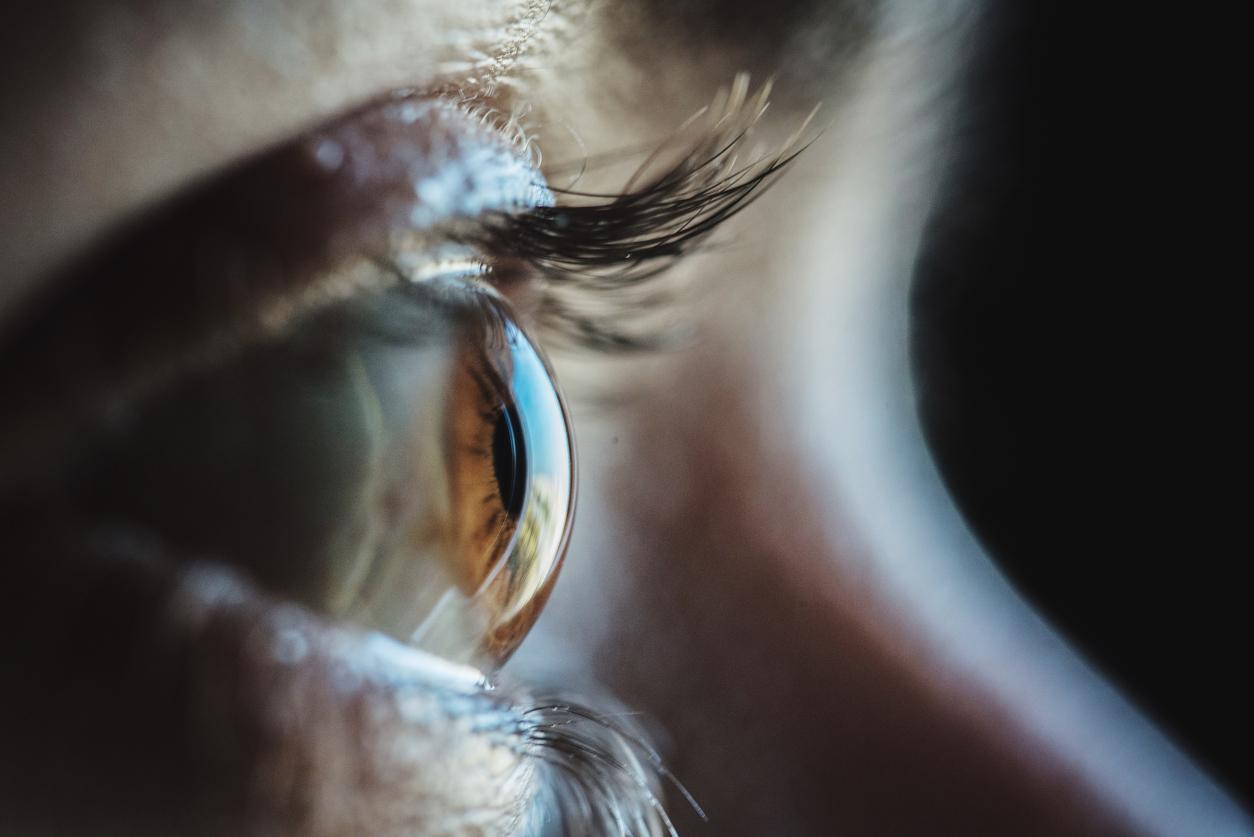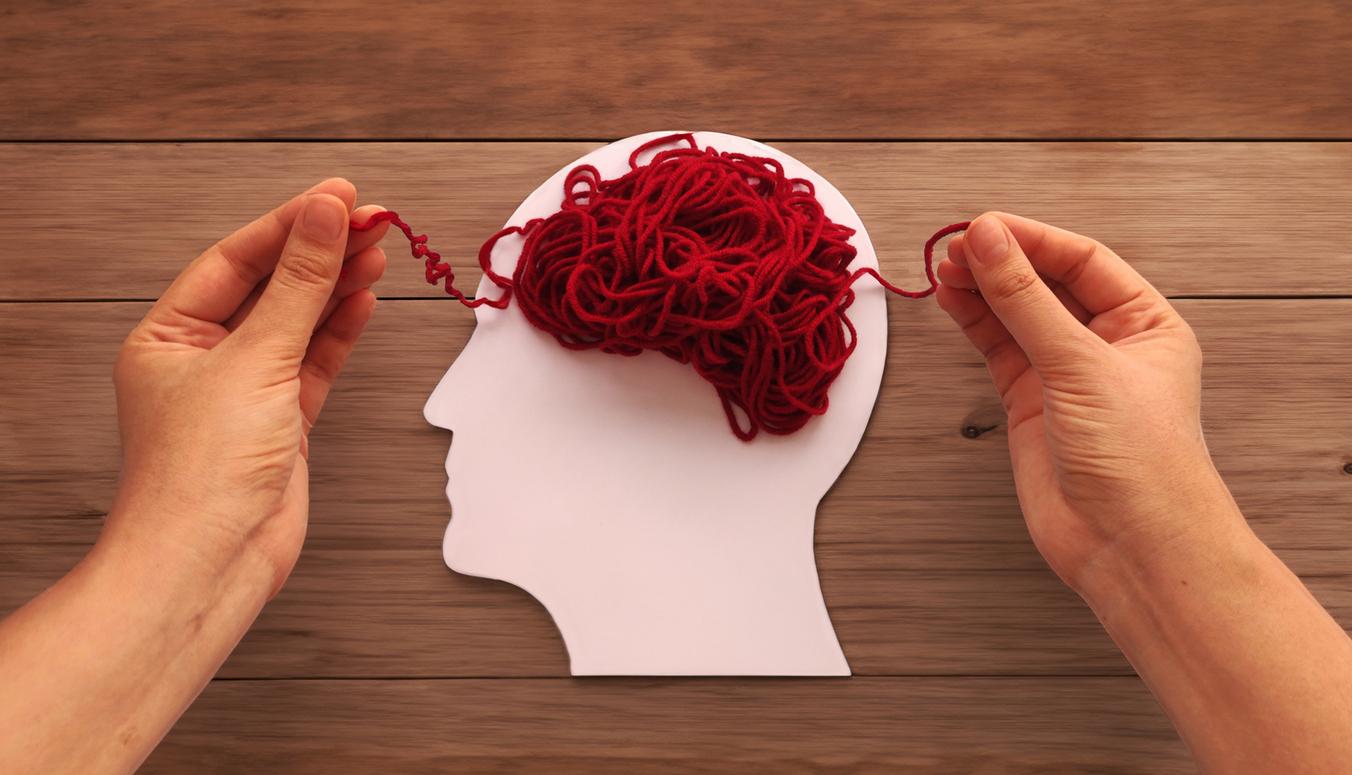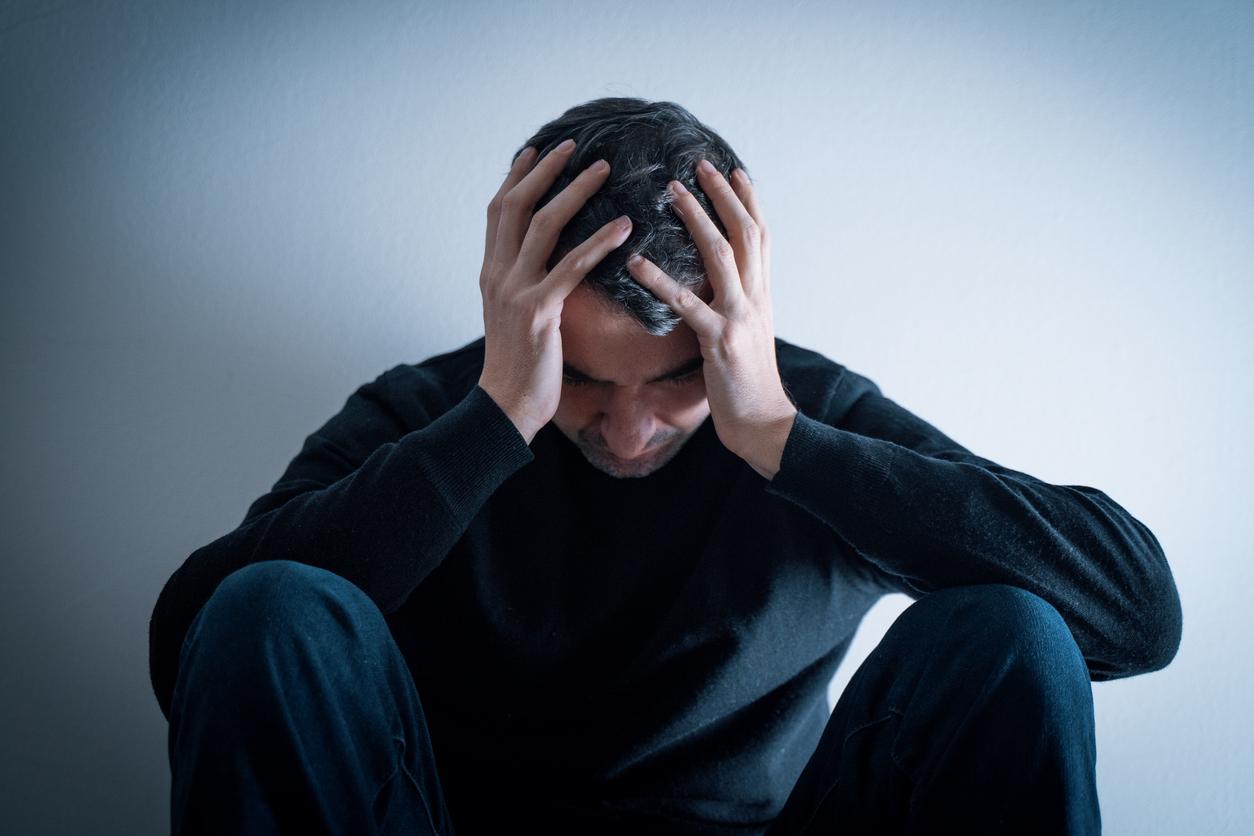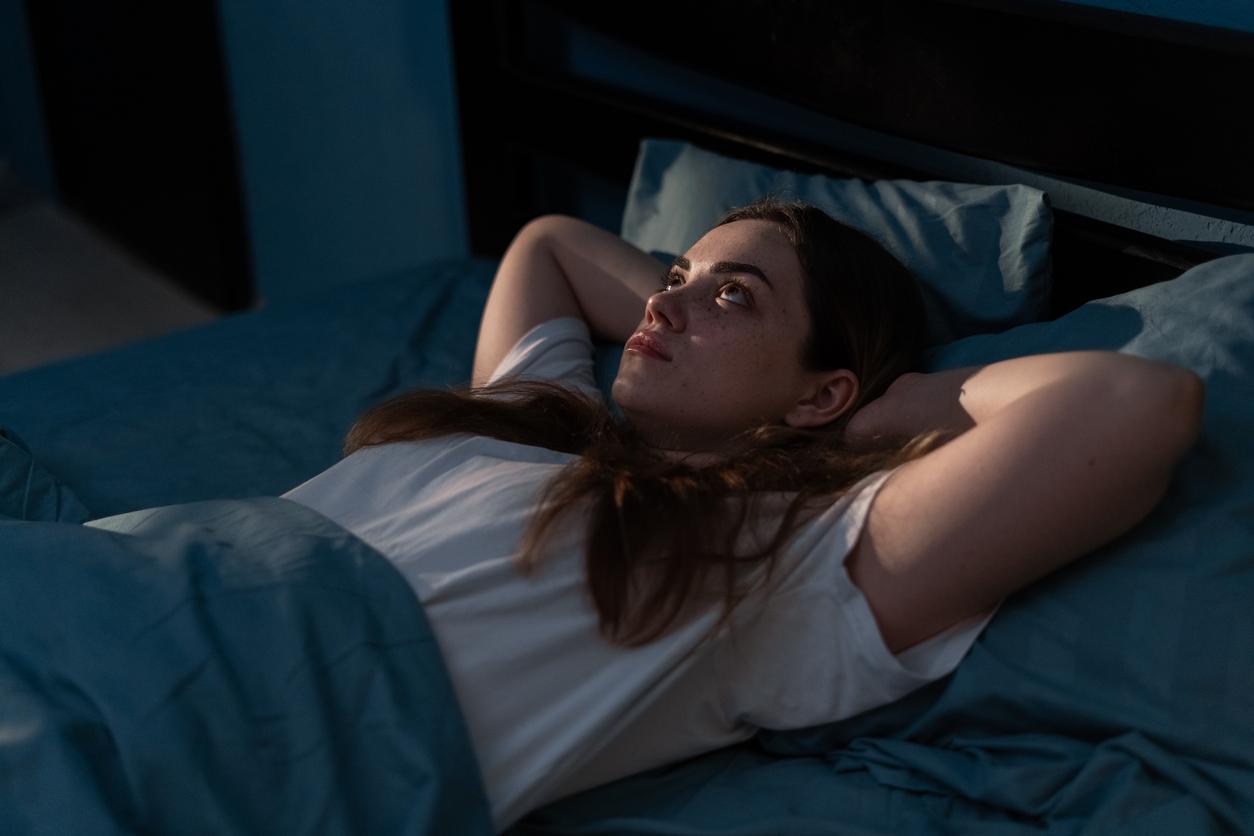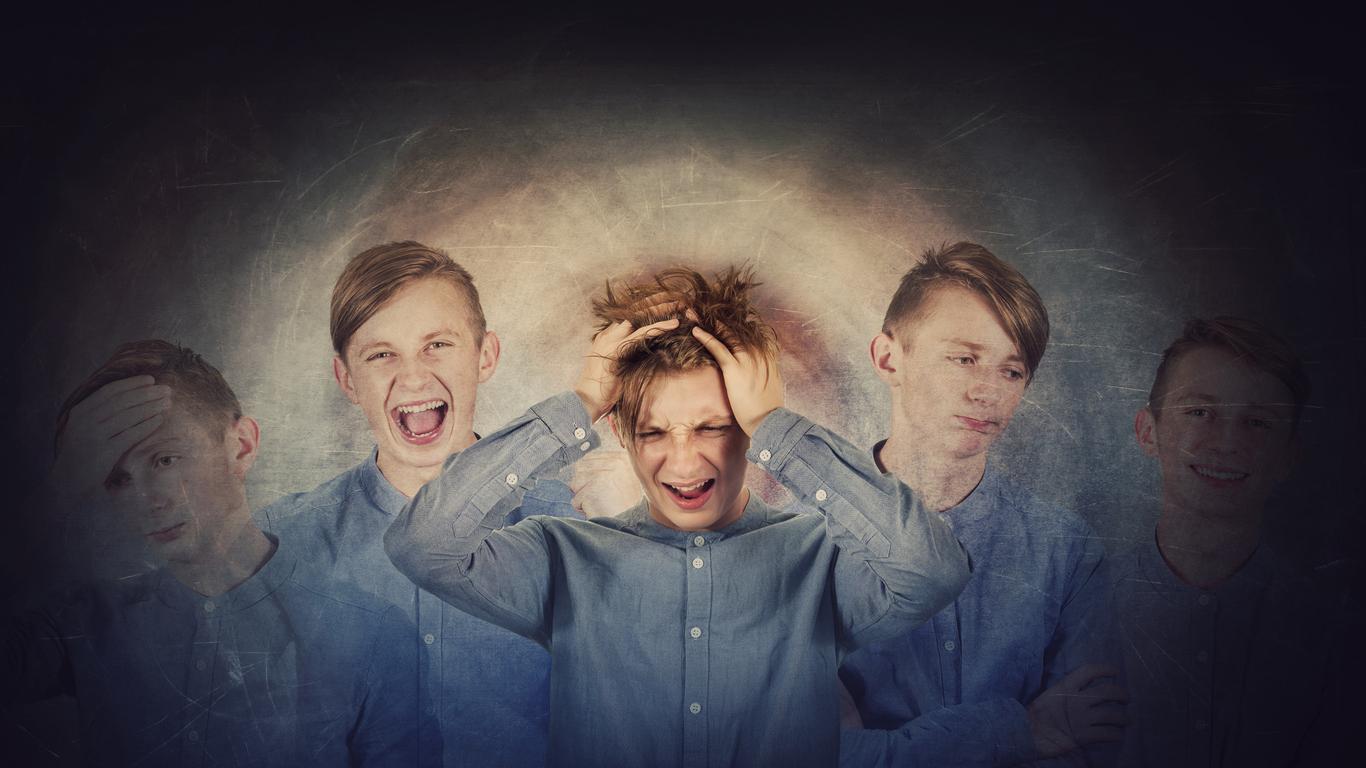A new study shows that in schizophrenic patients, insomnia is linked to worsening anxiety and depression, as well as increased suicidal thoughts and actions.

- In schizophrenic patients, sleep disorders and in particular insomnia, are linked to an increase in suicidal thoughts and suicide attempts.
- However, it has been shown that 23 to 44% of patients with schizophrenia suffer from insomnia problems: it is therefore necessary to properly manage insomnia to reduce the risk of suicide.
- The study shows that establishing certain habits, such as avoiding screens and caffeine, can be beneficial in treating sleep disorders, as well as an adaptation of treatment.
Affecting up to 1% of the world’s population, and approximately 600,000 people in France, schizophrenia is a mental illness due to disturbances that affect certain functions of the brain, in particular the thinking, emotions and behavior of people who are affected by it. reached. People with schizophrenia typically experience hallucinations, delusions, are affected by disturbances in thought, feeling, behavior, perception, and speech.
These very pervasive symptoms have a significant impact on the social and daily life of people with schizophrenia, which also increases the risk of suicide. According to scientific data, a person with schizophrenia has a 5 to 10% risk of death by suicide during their lifetime.
A new study, conducted by researchers at the Medical College of Georgia at Augusta University, in the United States, shows that this risk of suicide in schizophrenic patients is further increased in those suffering from insomnia. She just appeared in The Journal of Clinical Psychiatry.
“We now know that significant insomnia puts our patients at an even higher risk of suicide, so if they experience changes in their sleep patterns, if they have significant insomnia”says Dr. Brian Miller, a psychiatrist and schizophrenia expert at the Medical College of Georgia.
Poor sleep increases suicidal ideation
Researchers examined associations between insomnia, suicidal thoughts and attempts, and disease severity in 1,494 people diagnosed at 57 sites nationwide, and enrolled in a comparative study of five different antipsychotics.
Nearly half of the patients reported suffering from initial and moderate insomnia: they experience problems falling asleep or fragmented sleep. 27% reported terminal insomnia. That is, they wake up too early and cannot go back to sleep.
Studies show that insomnia is a common symptom in schizophrenic patients, the different sleep disorders unequally impact their mood. Thus, waking up too early is particularly associated with current suicidal thoughts, while difficulties falling and staying asleep significantly increase the likelihood of a suicide attempt in the past six months.
Waking up too early is also associated with more severe schizophrenia, including symptoms such as anxiety and depression. But regardless of the type of insomnia, it is bad for patients’ overall health and for the disease, says Dr. Miller.
Disruption of circadian rhythms
Previous studies have established that 23-44% of patients with schizophrenia suffer from insomnia problems, and whether or not they take medication. These insomnias occur early in the pathological process of schizophrenia, and are correlated with the severity of the disease.
How to explain this correlation between sleep disorders and schizophrenia? Researchers suspect a disruption of natural body clocks, or circadian rhythms, which help regulate sleep and wakefulness and other essential bodily functions. A generally high state of arousal in patients who hear voices and/or who are paranoid is also a likely factor. “If you hear voices constantly saying negative and horrible things, berating you, interfering with your thoughts and activities, it may be difficult to fall asleep”emphasizes Dr. Miller.
It is however possible to improve the sleep of schizophrenic patients and to act on their symptoms thanks to an adapted treatment. This new study thus suggests that insomnia is an important target for the treatment of schizophrenia. Dr. Miller cites the adoption of habits such as avoiding caffeinated drinks and blue light from screens at bedtime, and advocates the use of prescription or over-the-counter sleeping pills.
Adjustments may also be made to the antipsychotic medications used to treat their schizophrenia. For example clozapine, which has sedative effects, could be taken preferably in the evening. According to Dr. Miller, insomnia and suicidal thoughts and actions are less likely in patients taking antipsychotics known to also have a sedative effect.

.







